Outlaw Paradise
Outlaw Paradise
Why Countries Become Tax
Havens
Charles A. Dainoff
LEXINGTON BOOKS
Lanham Boulder New York London
Published by Lexington Books
An imprint of The Rowman & Littlefield Publishing Group, Inc.
4501 Forbes Boulevard, Suite 200, Lanham, Maryland 20706
www.rowman.com
6 Tinworth Street, London SE11 5AL, United Kingdom
Copyright 2021 The Rowman & Littlefield Publishing Group, Inc.
All rights reserved . No part of this book may be reproduced in any form or by any electronic or mechanical means, including information storage and retrieval systems, without written permission from the publisher, except by a reviewer who may quote passages in a review.
British Library Cataloguing in Publication Information Available
Library of Congress Cataloging-in-Publication Data Available
ISBN 978-1-7936-1991-4 (cloth : alk. paper)
ISBN 978-1-7936-1992-1 (electronic)
 The paper used in this publication meets the minimum requirements of American National Standard for Information SciencesPermanence of Paper for Printed Library Materials, ANSI/NISO Z39.48-1992.
The paper used in this publication meets the minimum requirements of American National Standard for Information SciencesPermanence of Paper for Printed Library Materials, ANSI/NISO Z39.48-1992.
Contents
Tax Havens by Geographic Region
Logistic Regression of Tax Havens, by Governance and Population
Logistic Regression of Tax Havens, by FDI Net Inflows and Population
Logistic Regression of Tax Havens, by GDP Per Capita and Population
First and foremost, I dedicate this book to my family; this book would not have possible without them. I would also like to thank the following people and institutions for their support and assistance: the University of Kentucky, Robert Farley, Davida Isaacs, Daniel Morey, Clayton Thyne, Ernest Yanarella, Emily Beaulieu Bacchus, Stacy Closson, Jillian Haglund; the University of Idaho, Graham Hubbs, Markie McBrayer, Zachary Turpin, Michael Overton, Aman McLeod, Omni Francetich, Florian Justwan, Casey Johnson, Aleta Quinn, Brian Ellison; the Army War College, Mark Duckenfield, Patrick Bratton, Allison Abbe, Christopher Hickey, Seminar 12, Jeff Wilson; and research and editorial assistance from J.C. Sharman, Jacob Shapiro, Lisa Stoxie, Geoffrey Williams, Erik Fay, Katie Angell, Allison Boyd, Kristen Bienstock, Bill Maurer, Robert Sproull, Dammika Dharmapala, and Carter Moran.
The idea for this bookindeed, for my whole research agendagrew out of a job I undertook in 2006 working for Scott Armstrong and Kevin Kenety in Washington DC as research and investigative support on an international fraud case involving privatization in Central Asia in the 1990s. The fraudster who took advantage of our client created an intricate network of shell companies in tax havens to, in effect, steal money from his erstwhile clients and avoid prosecution. Since then, I have focused on the role tax havens play as a chokepoint in our international financial and political systems, and the way they enable transnational violent non-state actors like organized crime syndicates and terrorist groups to operate, as well as the way they allow dictators to become kleptocrats, hollowing out their countries treasuries. These are the subjects I will address in future work.
The Bay Street Boys had had a good run, but it was coming to an end. The ruling elite of the Bahamas, so nicknamed because the men met at a club in Nassau on Bay Street, had taken what was a relatively quiet, if willing, outwardly focused economy with a modest amount of activity in the 1930s and turned it into a major hub of banking and gambling activity by the early 1960s. The Boys did not accomplish this feat all by themselvesthey had help from two people: Marshall Langer and Meyer Lansky.
Langer was an American tax attorney who started practicing in 1951 and consulted with the government of the Bahamas in rewriting its tax laws to encourage an increase in investment from outside the islands. The Bahamas already had a reputation in America as having a favorable tax environment, but Langer helped create an atmosphere of supercharged international development in the late 1950s.
Lansky, on the other hand, was one of the most powerful members of the Outfit, the Chicago organized crime syndicate once run by Al Capone. In fact, after Capone went to jail for tax evasion in 1931, Lansky became one of the first Americans to start using Swiss banks to launder money in 1932. Lansky would fly to Switzerland with suitcases stuffed with cash, jewelry, bearer bondsanything of value that was portable and could be reconverted into cash quickly. He would deposit the funds into a Swiss bank, and the bank would then loan an equivalent amount to one of the companies Lansky had set up in America. The bank got its money back when Lansky repaid the loans which, since they were from his businesses, were tax deductible. This techniquesoon to become standard practicewas called loaning back.
The money Lansky was laundering mainly came from different forms of gamblingcasinos and horse racingwhich had the disadvantage of being illegal in America. Cuba, on the other hand, was a different story, and
Enter the Bay Street Boys. They were all too willing to partner with Lansky and together the Boys and Lansky created the Grand Bahamas Development Corporation (DEVCO), which gave Lansky and his partners a foothold on the island. Lansky also paid Bahamian finance minister Stafford Sands $1.8 million to help make the islands government more cooperative. The result of this effort was stricter laws pertaining to banks releasing information about their customers to anyone, including criminal investigators. These laws made the Bahamas an even more attractive destination for money launderers and tax evaders, and development on the island boomed.
Until 1967, as in Cuba, popular discontent with the way the mafia and the local elites were despoiling the island led the Bahamians to revolt, albeit peacefully. The 1967 election was won by Lynden Pindling, a populist who ran on a reform platform calling for an end to gambling and corruption. This platform was not as threatening to what would become known as the offshore crowdbankers, accountants, and lawyers like Langer who make their living creating new tax avoidance and evasion strategies for wealthy individuals and multi-national corporations (MNCs)as the fact that Pindling was black and was calling for end to white minority rule; an end, as it were, to the rule of the Bay Street Boys. While the Bahamas remained, and would continue to remain, prosperous and relatively unaffected by the Pindling movement that led to independence in 1973, the smart money went elsewhere.
There were two choices. Two nearby islands with the British legal pedigree that allowed for the passage of banking secrecy and foreign ownership laws necessary to create a safe haven for offshore money and its handlers: Jamaica and Jamaicas former dependency, the Cayman Islands. Jamaica was more developed and in the throes of a growing economy thanks to high demand for the bauxite it mined and exported, and definitely more advanced than the the Cayman Islands at the time. Jamaica was also politically more sophisticated, having declared its independence from Great Britain in 1962. Despite this economic and political sophistication, the 1963 election in Jamaica was disturbing to the offshore community. This election was won by William Alexander Bustamante and the Jamaican Labor Party, and it did not seem to matter that the Labor Party was not socialist in the manner of the English political party of the same name; the Jamaicans seemed determined to control their own political and economic destiny.
As it turned out, the ruling elite of the Caymans had no such pretensions. Granted, the Caymans declared itself independent of Jamaica in 1959

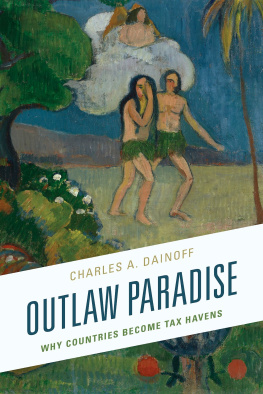
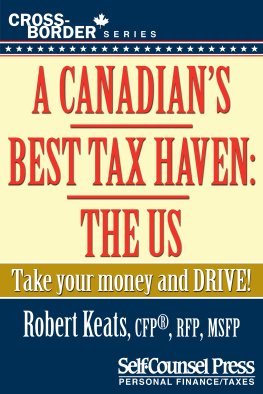

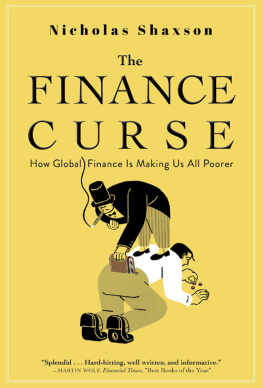
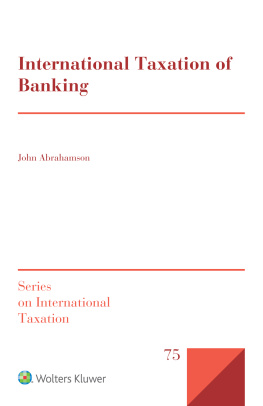
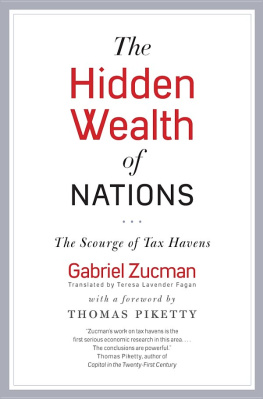
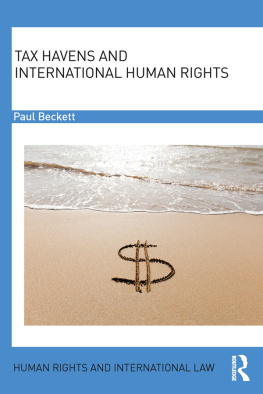
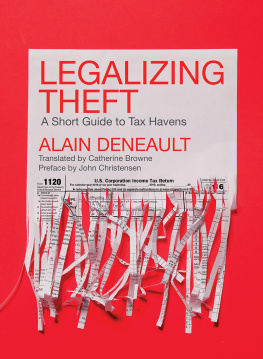
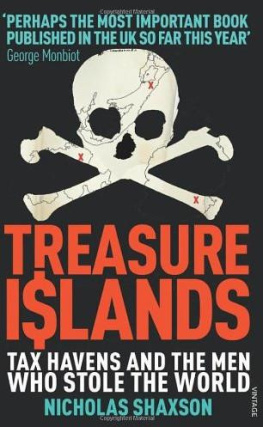
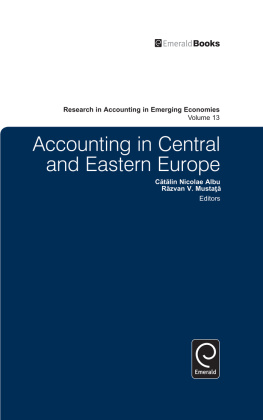

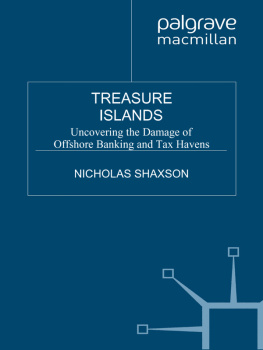

 The paper used in this publication meets the minimum requirements of American National Standard for Information SciencesPermanence of Paper for Printed Library Materials, ANSI/NISO Z39.48-1992.
The paper used in this publication meets the minimum requirements of American National Standard for Information SciencesPermanence of Paper for Printed Library Materials, ANSI/NISO Z39.48-1992.